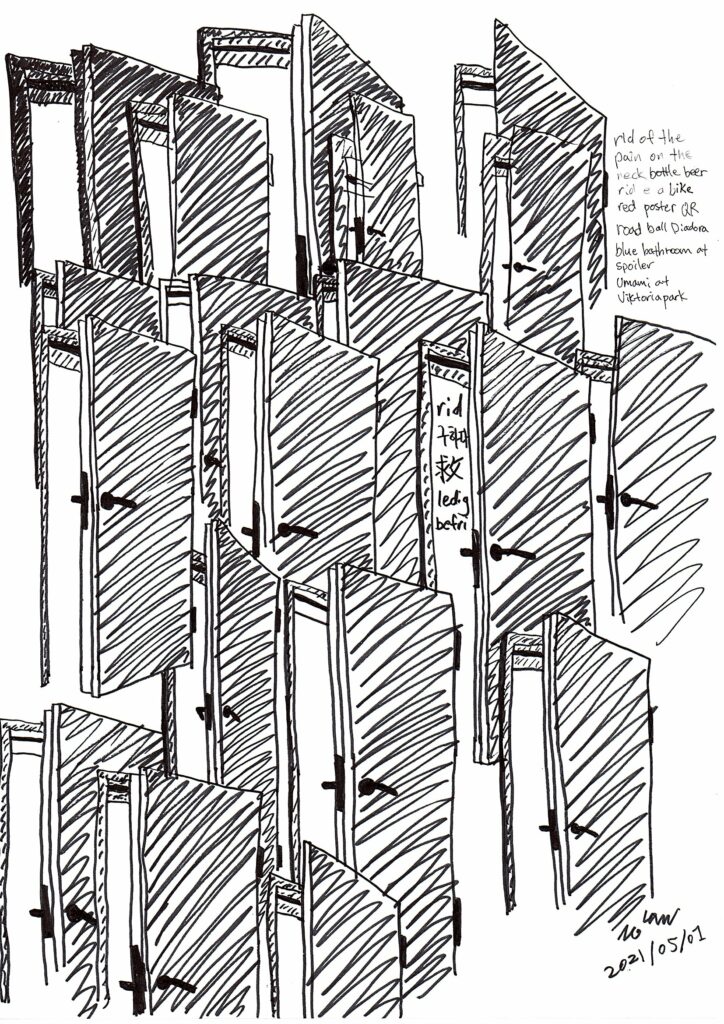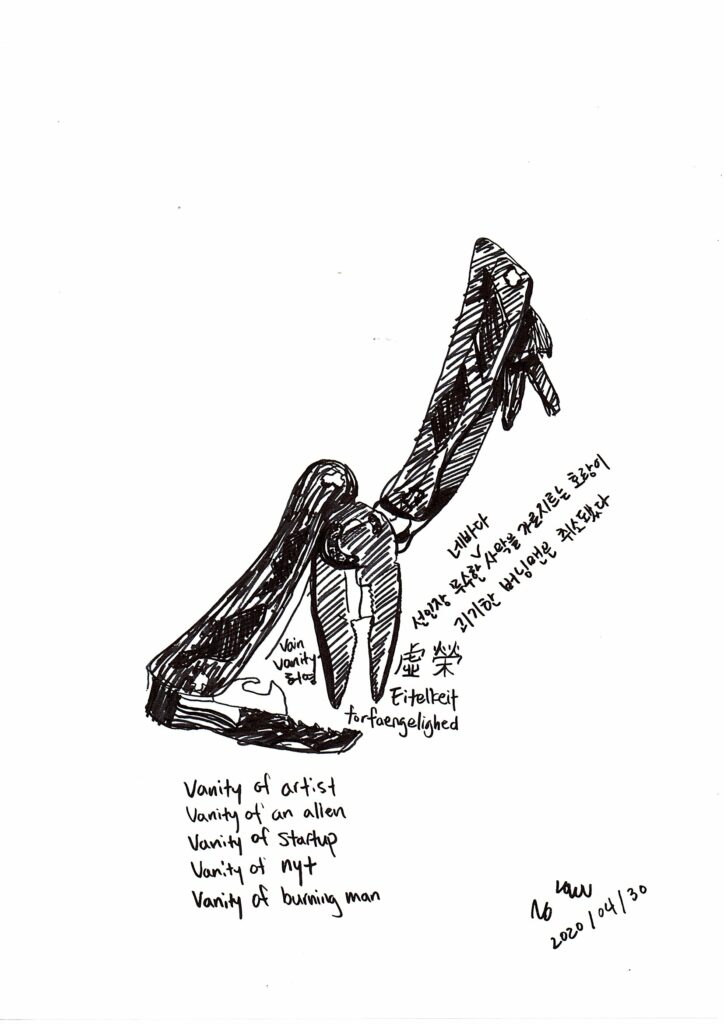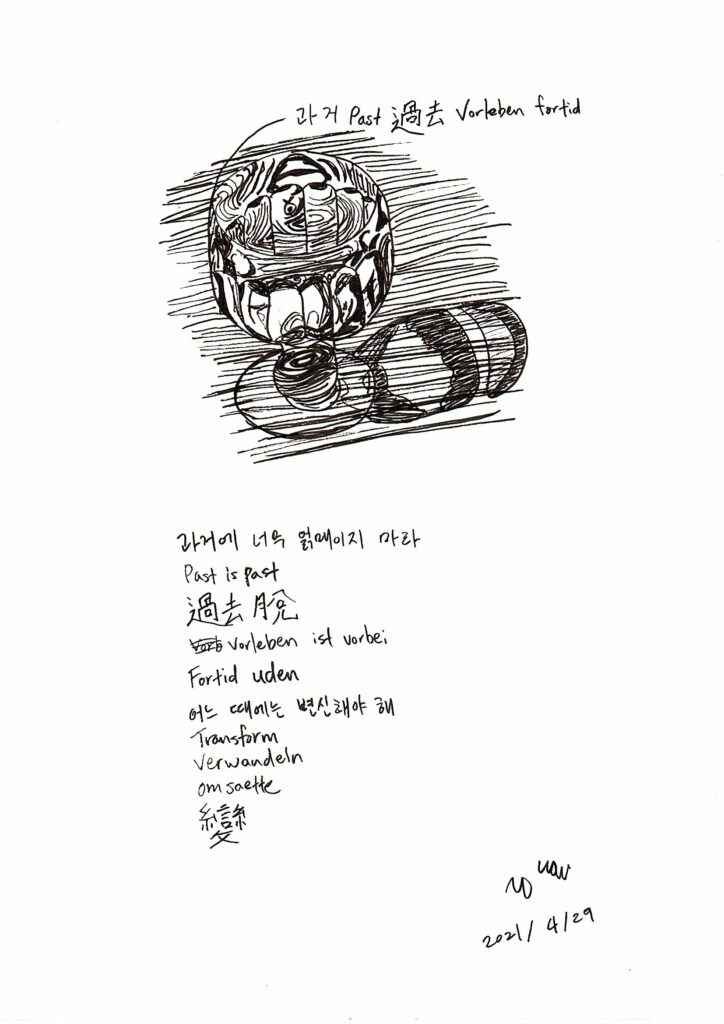To reform consciousness through the analysis of mystical consciousness unclear to itself in somatic movement and language attested by dialectical historical materialism to incorporate the particularity of the self as a subject in their time, the particularity of which is digital technology and flashing of collective consciousness, into the chain of totality.
Say something about the method of composition itself: how everything one is thinking at a specific moment in time must at all costs be incorporated into the project then at hand. Assume that the intensity of the project is thereby attested, or that one’s thoughts, from the very beginning, bear this project within them as their telos. So it is with the present portion of the work, which aims to characterize and to preserve the intervals of reflection, the distances lying between the most essential parts of this work, which are turned most intensively to the outside.
The Marxian theory of art: one moment swaggering, and the next scholastic.
Our election cry must be: Reform of consciousness not through dogmas, but through the analysis of mystical consciousness that is unclear to itself, whether it appears in a religious or a political form. Then people will see that the world has long possessed the dream of a thing – and that it only needs to possess the consciousness of this thing in order really to possess it.
Walter Benjamin, The Arcade Project [N1, 3], [N4a, 2]
Karl Marx, Der historische Materialismus: Die Frühschriften (letter from Marx to Ruge; Kreuzenach, Sep 1843)


